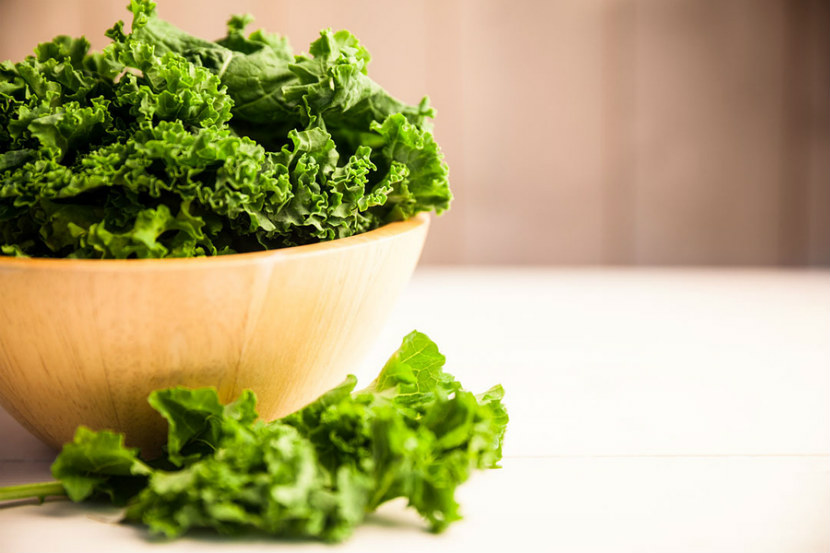
Vitamin K helps with many important functions in your body. Vitamin K helps your body heal wounds, maintain your blood vessels and keep your bones healthy. Vitamin K may also help in preventing fractures (broken bones), especially in women after menopause. Read on to learn more about what foods have vitamin K and how much you need.
How much vitamin K do I need?
The amount of vitamin K you need depends on your age, sex and life stage. The table below shows you how much you need:
Age
|
Vitamin K
Amount needed per day in micrograms
|
|
Men 19 and older
|
120 mcg
|
|
Women 19 and older
|
90 mcg
|
|
Pregnant women 19 and older
|
90 mcg
|
|
Breastfeeding women 19 and older
|
90 mcg
|
Very high amounts of vitamin K from supplements can be harmful. Speak to your doctor or healthcare provider before taking supplements.
What foods have vitamin K?
We get most of our vitamin K from foods. While our bodies make some of this vitamin, eating foods rich in vitamin K is important to keep you healthy. Dark green leafy vegetables like spinach and kale are the best sources of vitamin K. Plant oils like canola and soybean oil are also good sources of vitamin K.
Vitamin K is a fat-soluble vitamin. This means our bodies can better absorb this vitamin when it is eaten along with fat. Preparing foods rich in this vitamin with a small amount of fat or oil is the best way to absorb this nutrient.
The table below shows foods that contain vitamin K:
Food
|
Serving Size
|
Vitamin K (mcg)
|
|
Kale, raw |
250 mL (1 cup) |
578 |
|
Kale, cooked
|
125 mL (1/2 cup)
|
561
|
|
Collards or spinach, cooked
|
125 mL (1/2 cup)
|
442-469
|
|
Beet or turnip greens, cooked
|
125 mL (1/2 cup)
|
280-368
|
|
Parsley, raw
|
60 mL (1/4 cup) |
260
|
|
Brussels sprouts, cooked
|
4 sprouts
|
118
|
|
Broccoli, cooked
|
125 mL (1/2 cup)
|
116
|
|
Romaine lettuce, raw
|
250 mL (1 cup)
|
61
|
|
Green or scallion onions, raw
|
60 mL (1/4 cup)
|
55
|
|
Asparagus, cooked
|
6 spears
|
46
|
|
Kiwifruit |
1 large fruit |
37 |
|
Soybeans, cooked
|
175 mL (3/4 cup)
|
24
|
Do I need a vitamin K supplement?
No. Most people get enough vitamin K through food.
People with low levels of vitamin K due to a low diet of green leafy vegetables may benefit from taking supplements. Because the amount of vitamin K in supplements is much higher than the amounts found in food, talk to your doctor or health care provider before you start taking a supplement. Too much of this vitamin may be harmful.
Vitamin K and drug interactions
Warfarin (also known as Coumadin) is a drug used to prevent blood clots from forming. It works as a blood thinner. Vitamin K can stop Warfarin from working as well as it should.
Food sources of vitamin K do not need to be avoided if you are taking this drug. For the drug to work well, your intake of this vitamin should remain as constant as possible.
Sudden changes in the amount of vitamin K you eat should be avoided, which can happen if you are following a quick weight loss plan or eating more green leafy vegetables than usual.
Meal and snack ideas that are sources of vitamin k
-
Eat your vegetables! Green leafy vegetables are the best sources of vitamin K. Add kale and spinach to soups, casseroles and omelettes.
-
Skip the iceberg lettuce in your salads and sandwiches and reach for romaine lettuce, spinach, mustard greens, beet greens or turnip greens.
-
Read about these nutritious and delicious vegetables and great ways to incorporate them into your diet.
-
Try a homemade dressing made from canola or safflower oil and add it to a spinach or romaine salad to absorb the most vitamin K.
Try these other nutritious recipes that are rich in vitamin K:
Swiss Chard Frittata
Swiss Chard and Crunchy Apple Salad
Crispy Kale Chips
Last Update – March 21, 2019